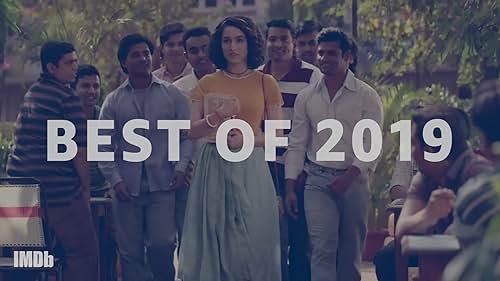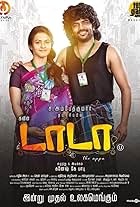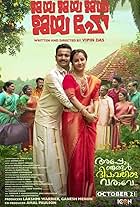A single father tries to raise his daughter, who has cerebral palsy, even as she is beginning to wake up to her sexuality.A single father tries to raise his daughter, who has cerebral palsy, even as she is beginning to wake up to her sexuality.A single father tries to raise his daughter, who has cerebral palsy, even as she is beginning to wake up to her sexuality.
- Awards
- 5 wins & 9 nominations total
Shanmugarajan
- Home In-Charge
- (as Shanmugaraja)
- Director
- Writer
- All cast & crew
- Production, box office & more at IMDbPro
Storyline
Did you know
Featured review
Mammootty transforms into Amudhan, the father while Sadhana astonishes us as the spastic child. Through the last few months of waiting, from the trailers, the impression was that the spastic child in the trailer was actually a spastic child. Not one moment where the real Sadhana flickers through. Always Paapa, the character.
While Amudhan is always playing the caretaker role, carrying the responsibility of raising his spastic child, one chapter is devoted to Amudhan and his tribulations. That was the chapter where Mammootty stood up and declared that he is indeed world class, the best of the best. Performance reminiscent of Amaram, and perhaps even better. There are other magical strokes too that come through at various points as would from an honest, realistic narrative of a storyline centered around being a spastic child, and raising a spastic child.
It is however also true that the admiration for Mammootty meant that you could never only see Amudhan on the screen. When simple non-melodramatic close up shots of Amudhan surface on the screen, you cannot but feel the Mammootty aura.
The movie asks you very direct questions and gives you many blatant truths. It is not designed to make the viewer cry. While the subject can easily lead into such moments, by design, the movie has been kept even keel.
While the narrative is slow, there is so much content to wade through that it will take some time for the experience to sink in. Perfection shines through in many scenes. Trailers that had been released are unedited scenes from the movie as is. They have a completeness to them as is. Through slow and seemingly mundane scenes, the movie suddenly takes a strong stand that you cannot ignore, or reveals something new that you did not see coming.
To all the "retired peacefully" lifestyle seekers, the movie asks whether you would let a spastic child live in your neighborhood if she screams uncontrollably at night? That is how the movie starts. Forced into exile, Amudhan seeks to live with his daughter in an isolated house in a beautiful valley where the mist and the mountains give the cameraman a canvas. Tarkovsky's mists had set too high a standard in my mind to be met here in Peranbu, but the sights were really nice, though the mist seems to have been sped up a bit that did not feel as natural.
In a matter of a couple of seemingly slow scenes, the movie communicates that the daughter is not initially close to her father and then just as effortlessly brings them together with very realistic beautiful small incidents with background music that gels everything together nicely. No fanfare. Just honesty. This promise has been kept all through the movie as the movie asks one tough question after another and files open complaints against the injustices that it sees in the protagonists' world.
The movie addresses the challenging question of sexuality of a spastic child in a few of it's later chapters. Her sexuality is as real as any other teenager's while her being a spastic adds an incongruent challenge to it. The movie addresses the subject forthrightly. There is a scene where the overload of information on the subject destabilizes Amudhan leading to a minor accident. That scene is beautifully open to interpretation.
There have been so many movies made already and the typical challenge is to be able to say anything at all that is new. Peranbu comes across as if it is unaware of any such challenges. There is so much that the movie says. Filled with insights, the movie is impossible to ignore.
The music and background score of the movie has been excellent and aligns very well with the communication style that the movie has adopted. Emotional, but at the same time, simple.Casting has been perfect. Every single character in the movie has found the right actor to represent him/her. Presented as twelve chapters, but still very nicely integrated, editing has been very good. Camera work has been subtle and gentle for most of the movie. Great story, great screenplay, masterful direction - a must watch!
While Amudhan is always playing the caretaker role, carrying the responsibility of raising his spastic child, one chapter is devoted to Amudhan and his tribulations. That was the chapter where Mammootty stood up and declared that he is indeed world class, the best of the best. Performance reminiscent of Amaram, and perhaps even better. There are other magical strokes too that come through at various points as would from an honest, realistic narrative of a storyline centered around being a spastic child, and raising a spastic child.
It is however also true that the admiration for Mammootty meant that you could never only see Amudhan on the screen. When simple non-melodramatic close up shots of Amudhan surface on the screen, you cannot but feel the Mammootty aura.
The movie asks you very direct questions and gives you many blatant truths. It is not designed to make the viewer cry. While the subject can easily lead into such moments, by design, the movie has been kept even keel.
While the narrative is slow, there is so much content to wade through that it will take some time for the experience to sink in. Perfection shines through in many scenes. Trailers that had been released are unedited scenes from the movie as is. They have a completeness to them as is. Through slow and seemingly mundane scenes, the movie suddenly takes a strong stand that you cannot ignore, or reveals something new that you did not see coming.
To all the "retired peacefully" lifestyle seekers, the movie asks whether you would let a spastic child live in your neighborhood if she screams uncontrollably at night? That is how the movie starts. Forced into exile, Amudhan seeks to live with his daughter in an isolated house in a beautiful valley where the mist and the mountains give the cameraman a canvas. Tarkovsky's mists had set too high a standard in my mind to be met here in Peranbu, but the sights were really nice, though the mist seems to have been sped up a bit that did not feel as natural.
In a matter of a couple of seemingly slow scenes, the movie communicates that the daughter is not initially close to her father and then just as effortlessly brings them together with very realistic beautiful small incidents with background music that gels everything together nicely. No fanfare. Just honesty. This promise has been kept all through the movie as the movie asks one tough question after another and files open complaints against the injustices that it sees in the protagonists' world.
The movie addresses the challenging question of sexuality of a spastic child in a few of it's later chapters. Her sexuality is as real as any other teenager's while her being a spastic adds an incongruent challenge to it. The movie addresses the subject forthrightly. There is a scene where the overload of information on the subject destabilizes Amudhan leading to a minor accident. That scene is beautifully open to interpretation.
There have been so many movies made already and the typical challenge is to be able to say anything at all that is new. Peranbu comes across as if it is unaware of any such challenges. There is so much that the movie says. Filled with insights, the movie is impossible to ignore.
The music and background score of the movie has been excellent and aligns very well with the communication style that the movie has adopted. Emotional, but at the same time, simple.Casting has been perfect. Every single character in the movie has found the right actor to represent him/her. Presented as twelve chapters, but still very nicely integrated, editing has been very good. Camera work has been subtle and gentle for most of the movie. Great story, great screenplay, masterful direction - a must watch!
- How long is Resurrection?Powered by Alexa
Details
Box office
- Budget
- ₹70,000,000 (estimated)
- Gross worldwide
- $3,417
- Runtime2 hours 27 minutes
- Color
- Aspect ratio
- 2.35 : 1
Contribute to this page
Suggest an edit or add missing content






























